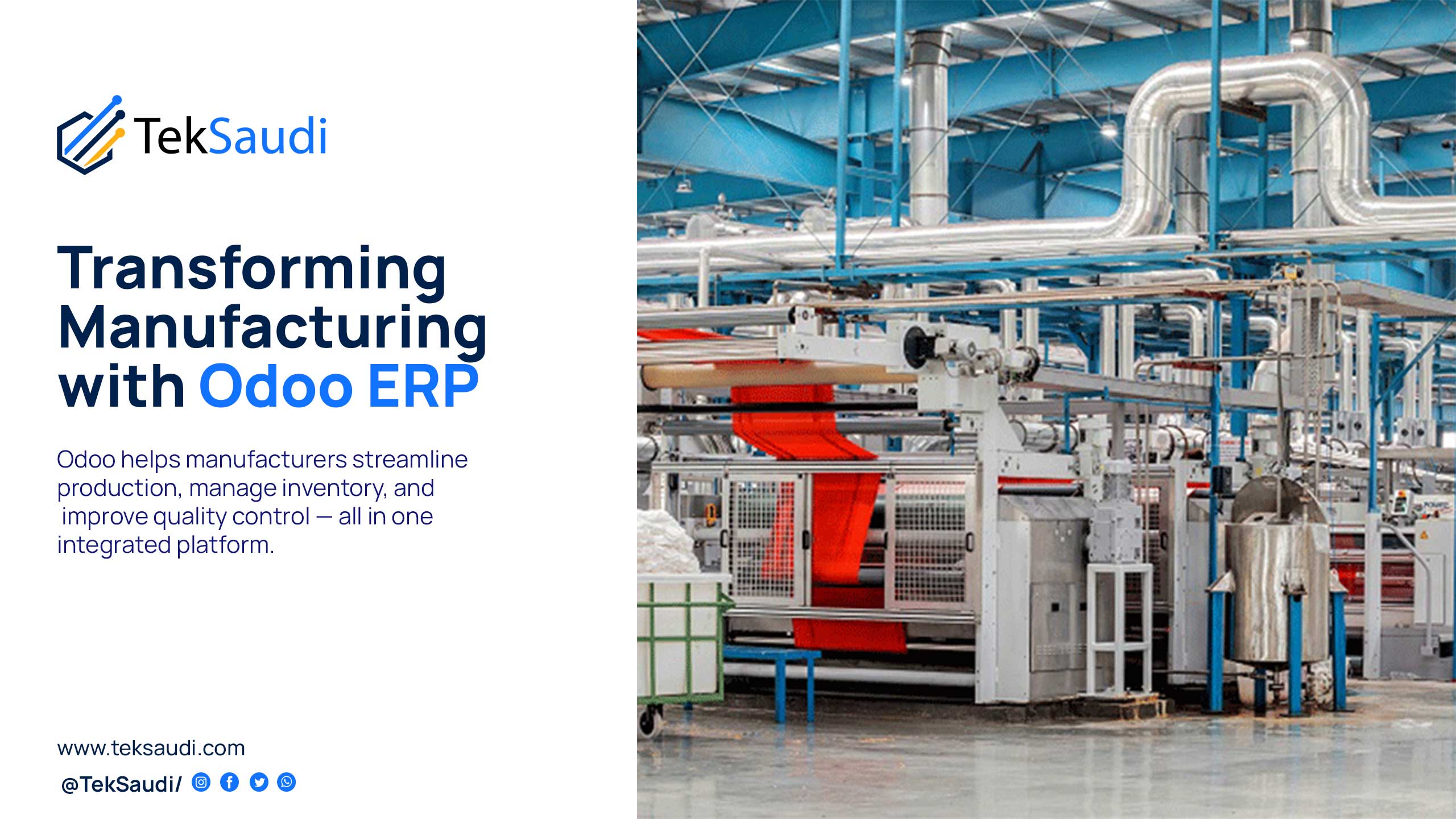Introduction In today’s competitive manufacturing landscape, operational efficiency, cost control, and real-time data tracking are critical to success. Traditional ERP systems often fall short due to their complexity and high cost. Enter Odoo – a flexible, modular ERP solution that is transforming manufacturing operations around the world. In this blog, we’ll explore how Odoo can streamline manufacturing processes and walk through a practical, step-by-step implementation guide tailored for manufacturers.
Why Odoo for Manufacturing? Odoo stands out as an ERP choice for manufacturing companies due to its:
- Modular structure for customized implementation
- User-friendly interface
- Real-time reporting and analytics
- Seamless integration with production, inventory, and quality control
Popular Odoo modules for manufacturers include:
- MRP (Manufacturing Resource Planning)
- Inventory
- Purchase
- Quality
- Maintenance
- PLM (Product Lifecycle Management)
Challenges Odoo Solves in Manufacturing
- Disconnected production planning
- Poor inventory visibility
- Inefficient quality control
- Manual tracking of maintenance
- Lack of real-time data
With Odoo, all departments are connected, allowing manufacturers to automate and optimize processes from production to delivery.
Step-by-Step Implementation Guide for Manufacturers
Step 1: Requirement Analysis
- Identify operational bottlenecks
- Define business goals and KPIs
- Determine module requirements
Step 2: System Design & Planning
- Choose relevant modules (MRP, Inventory, PLM, etc.)
- Map workflows to Odoo features
- Set a realistic timeline and project scope
Step 3: Configuration & Customization
- Configure production routes, BOMs, work centers
- Customize reports, user roles, and workflows
- Integrate with other tools (e.g., barcode scanners)
Step 4: Data Migration & Testing
- Import historical production and inventory data
- Conduct user testing and QA
- Adjust configuration as needed
Step 5: Training & Go-Live
- Train staff on manufacturing operations in Odoo
- Monitor performance post-launch
- Provide ongoing support and updates
Benefits After Implementation
- Increased production efficiency
- Improved inventory accuracy
- Real-time tracking and reporting
- Better quality and maintenance control
Conclusion Manufacturing businesses can gain a serious competitive advantage with Odoo ERP. By following a structured implementation plan, manufacturers can move from manual processes to streamlined, automated operations that scale with growth.

